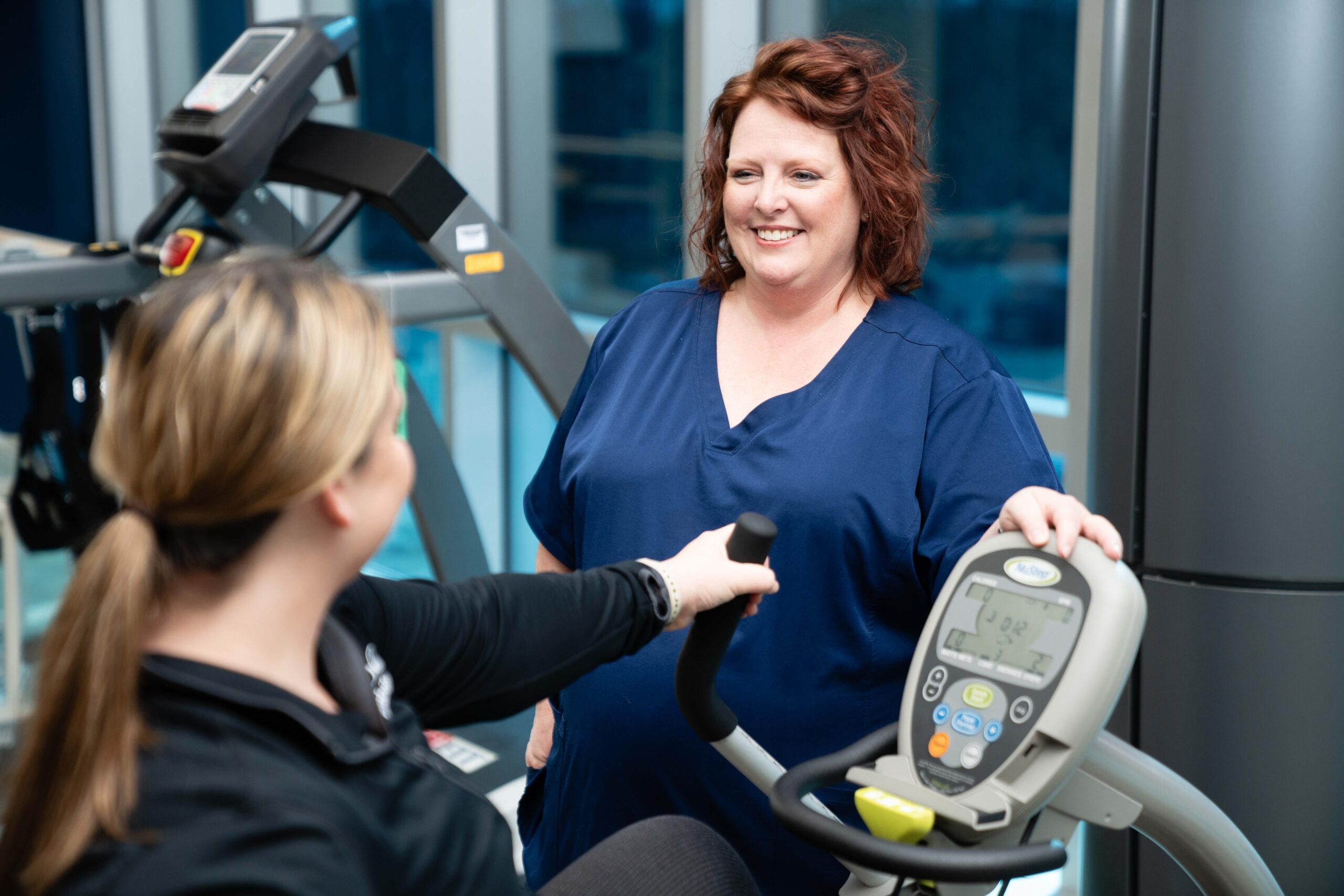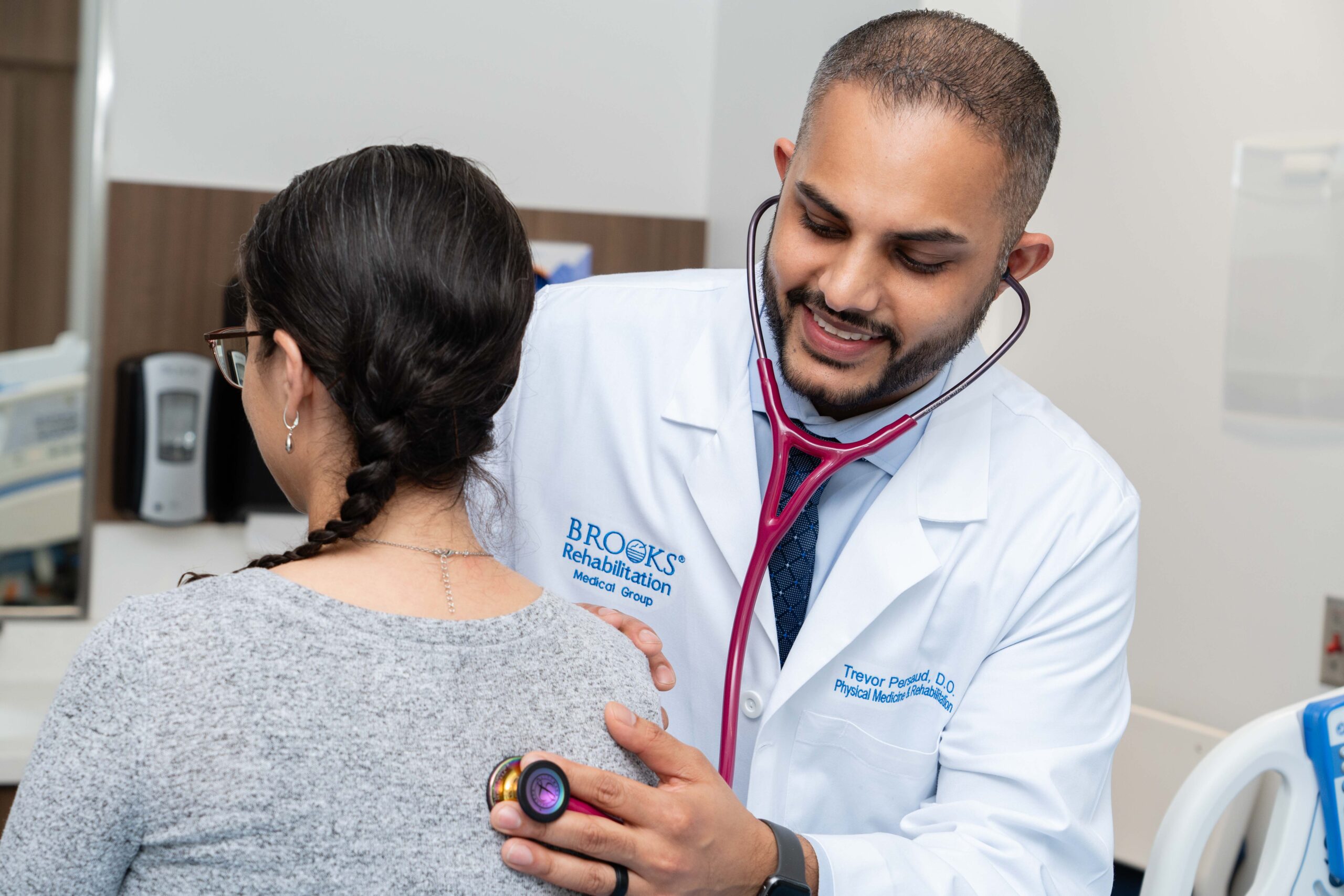Musculoskeletal Pain Treatment: Research Shows Patients Want a Say

Back to physical health resource hub
Musculoskeletal (MSK) pain is any pain that affects the muscular system (muscles), the skeletal system (bones and joints) or the anatomical structures that link them together (tendons and ligaments). Anyone who suffers from chronic pain is likely experiencing MSK pain.
The impact of MSK pain on society is substantial. According to the World Health Organization, more than 1.7 billion people globally suffer from MSK pain. Lower back pain, specifically, is the leading cause of disability in 160 countries. A report in JAMA concluded that, in 2016, health care spending in the U.S. on MSK disorders was nearly $381 billion.
Brooks Research team has been tackling this problem in their research and have taken a novel approach, which involves the patient’s perspective as part of the research.
Asking Patients Different Questions
Amid all the research on health and economic outcomes, one thing that is often overlooked is the patient’s perspective. Research questions usually focus on what doctors, scientists, economists and policymakers find meaningful, but rarely are patients asked what they find meaningful. Brooks research team in partnership with other health care researchers aimed to correct this oversight in its most recent ongoing research, some of which was published in the journal Research Involvement and Engagement.
Over the course of two years, from August 2016 to July 2018, the Brooks research team embarked on a journey of active listening and authentic engagement with MSK pain patients and other stakeholders. The long-term goal of the team was to develop a methodology and capacity for treating pain patients as research partners. During the research, patient testimonials were transcribed.
Patients expressed concerns over a lack of communication and coordination between providers, delays in treatment, limitations in insurance companies’ willingness to pay for services and possible opioid addiction.
The patient testimonials were eye-opening. For example, one patient told us:
“Over the years it has often been frustrating as a musculoskeletal patient being treated by a neurologist, rheumatologist, pain management doctor and physical therapist for related issues, often at the same time. However, my providers were not communicating with each other. This meant I had to be the link between them. Shared decision making still isn’t a concept most of them understand. “
Overall, three specific points of emphasis were especially noteworthy: (1) the desire for non-pharmacological treatment options; (2) the need for better strategies in self-management of pain; and (3) the necessity of shared decision making. This latter point is worth elaborating on.
The Importance of Shared Decision Making
Shared decision making is key to successful health care outcomes. Hospitals and clinics can feel cold and impersonal, which is one reason patients need to feel that they have ownership over the healing process — namely, that they are playing an active and important role in their own treatment. Unfortunately, many do not feel that way. Consider what one patient in the study shared:
“Most doctors just want you to do what they tell you without question. Also, unless it’s going to produce money for the insurance companies, the regulatory agencies, the doctors, and every other organization involved … nothing is going to change.”
When patients feel ignored by their doctors, they can develop a cynical attitude towards treatment. This can be damaging to the individual’s and society’s view of health care. Health care providers cannot believe in the power of health care if their patients don’t believe.
Patients as Partners in Research
One promising solution is to involve patients as research partners. It is Brooks research team’s overarching goal to provide opportunities for patients to serve as co-investigators, joint decision makers and leaders in patient-driven research. This mission seems to resonate with the patients, one of whom said:
” It is exciting to think that the results could potentially change how medicine is practiced even if only in one practice at a time.”
Patients as Partners in Treatment
Another finding Brooks researchers and partners have made, which was reported in the Journal of Manual & Manipulative Therapy, involves the importance of patient preference in treatment. Many patients are quite comfortable having their healthcare providers determine the entire course of treatment, but certainly not all.
In the past, doctors and nurses usually made most of the decisions about a patient’s healthcare without much input from the patient. This can make patients frustrated.

One solution presented to this issue is to have patients express the degree to which they want to be in control of their own treatment regimen using a “control preference scale.” The scale consists of five statements, and the patient is to pick the statement that is most reflective of their preference:
(1) I prefer to make the decision about which treatment I will receive.
(2) I prefer to make the final decision about my treatment after seriously considering my doctor’s opinion.
(3) I prefer that my doctor and I share responsibility for deciding which treatment is best for me.
(4) I prefer my doctor makes the final decision about which treatment will be used, but seriously considers my opinion.
(5) I prefer to leave all decisions regarding my treatment to my doctor.
Notably, even patients who want the doctor to make all the major decisions still want to be fully informed about all possible options.
A Patient-centric Approach
Ultimately, the goal of medicine is to make the patient healthy and happy — and research overwhelmingly indicates that patients won’t be fully healthy if they aren’t fully happy. By treating them as potential partners in research and treatment, we can help foster a truly patient-centric approach to health care.
Brooks Clinical Research Center
Brooks Clinical Research Center, based in Jacksonville, Fla., is nationally recognized for its research in stroke, MSK pain and spinal cord injuries. The Brooks research department is devoted to conducting innovative research studies that will expand the knowledge and science of recovery for patients. Our skilled team is driven by a mission to generate new evidence and integrate the latest research discoveries into clinical practice.



